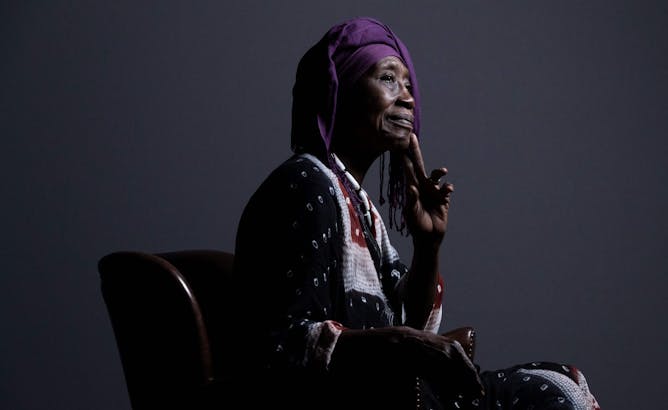|
When Germaine Acogny left Senegal to study in Paris in 1962 she encountered classical western dancing. She’d always loved to dance, but her teachers told her she wasn’t suited to European forms because of her tall frame and flat feet. So Acogny began to make dance based on her own body, replacing orchestras with West African drummers. She would go on to develop her own dance technique, open a school, and win awards around the world. As she turns 80, Lliane Loots considers her massive influence on the dance world.
Lithium is a crucial mineral because it’s used to make rechargeable batteries. These power a wide range of devices, from smartphones to electric vehicles, and contribute to cleaner energy. Lithium’s importance has caused a global rush towards African countries with large deposits. A team of researchers lay out what African countries need to do to reap the benefits of this valuable mineral.
Our annual donations campaign is still running. We aim to serve as a source of trusted news analysis and insights about the African continent. Please consider supporting our work.
Donate now
|

Lliane Loots, University of KwaZulu-Natal
Germaine Acogny has risen as a female artist who has defied stereotypes to become one of the world’s most revered dance makers.
|

James Boafo, Murdoch University; Eric Stemn, University of Mines and Technology; Jacob Obodai, Edge Hill University; Philip Nti Nkrumah, The University of Queensland
Africa hosts substantial reserves of critical minerals.
|

Nicodemus Minde, United States International University
Many Tanzanians agree that the union between Tanganyika and Zanzibar should be reformed to reflect contemporary realities.
|

Tonny Nelson Matjila, University of South Africa
Some students with hearing difficulties feel lonely and excluded from daily campus life.
|
From our international editions
|
-
Matthew Smith, Miami University
May 2024 marks the 100th anniversary of the Immigration Act of 1924, which sharply cut the number of people allowed into the US.
-
Colin John Irwin, University of Liverpool
The Israeli prime minister, Benjamin Netanyahu, is opposed to a two-state solution, but many ordinary Israelis and Palestinians don’t feel the same way.
-
Zixiao Yang, University College Cork; Maria McNamara, University College Cork
Understanding more about feathers could change the way we think about dinosaurs.
-
Catherine Gegout, University of Nottingham
The ICC is seeking arrest warrants for Israeli and Hamas leaders that are suspected of committing war crimes in Gaza.
-
Javed Ali, University of Michigan
Student-led protests in response to US engagement in the Vietnam War mounted in the 1960s and led to a group called the Weather Underground that believed in direct confrontation with the state.
|
|